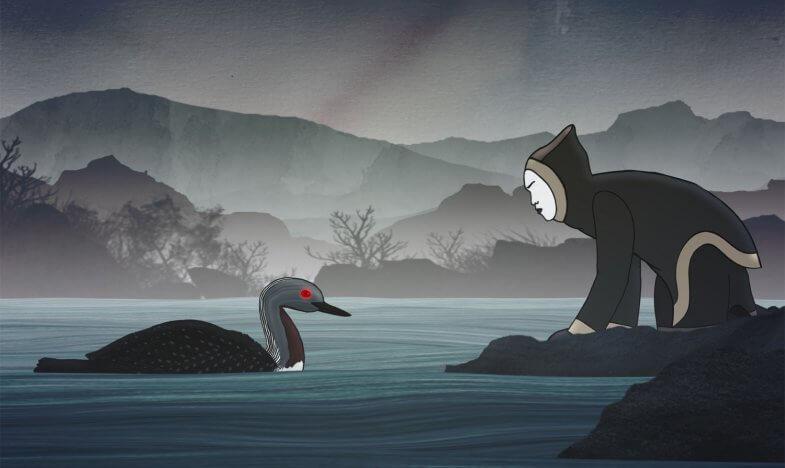NFB announces three-year Indigenous Action Plan

Lumaajuuq (Dir. Alethea Arnaquq-Baril)
The National Film Board of Canada, the nation’s long-standing and highly-reputed producer/distributor of animation, shorts, documentaries and interactive projects, has this week announced their commitment to addressing concerns regarding “systemic inequities in the existing Canadian production landscape” via their three-year Indigenous Action Plan. The plan has been formulated under the recommendations of the Truth and Reconciliation Commission of Canada (TRC).
Since 1968 the NFB have produced over 280 works by Indigenous filmmakers, with work by First Nations, Métis and Inuit directors having been made widely accessible to Canadian audiences. On this foundation the Indigenous Action Plan is being put into effect, with 33 commitments outlined under the categories Institutional Transformation, Industry Leadership, Production and Distribution/Collection Management/Education.
Among the key commitments is the ensuring of complete representational parity in the NFB workforce by 2025, devoting at least 15% of production spending on Indigenous-directed project, and working with Indigenous partners to develop guidelines for archival access and Indigenous-themed film production.
The NFB acknowledges its enormous debt to the first generation of Indigenous filmmakers at the NFB, first and foremost Alanis Obomsawin. Alanis joined the NFB in 1967 and fought against an often hostile environment to create an unparalleled body of work that has fundamentally recast understandings of Indigenous realities and relationships with settler society. The struggles of Alanis and others to claim a space for Indigenous voices within the NFB, on Canadian screens and within the broader Canadian production industry constitute the foundations for the commitments we are making today.
-Claude Joli-Coeur, Government Film Commissioner and Chairperson of the NFB
The full list of commitments and priorities – including the overall development of the NFB’s Indigenous collection, to be released next year – is posted on the NFB website.

The Mountain of SGaana (Dir. Christopher Auchter)
All divisions of NFB staff will be consulting an advisory group of Indigenous organizations to discuss key areas as well as which experts and filmmakers will ensure a multi-national, multi-generational and cross-disciplinary approach to ensure the best representation possible.
Joli-Coeur adds:
Delivering on the full range of commitments included in this plan is a structured starting point that will lead to long-term and sustained transformation. Most of the actions will be implemented within three years, others will take more time, but we commit to sharing this strategy and key priorities publically―making the processes and results transparent. We will meet with our advisory group on an annual basis over the next three years to discuss progress and establish annual goals and priorities. I want to thank our advisory members for their commitment to working with us throughout this process of transformation, and all the Indigenous filmmakers and partners, past and present, who have worked at and with the NFB over the years.
The current members of the NFB’s Indigenous Advisory Group are:
- Alanis Obomsawin, Producer-Director & Cultural Attaché, NFB
- Tasha Hubbard, Filmmaker & Assistant Professor, University of Saskatchewan
- Elle-Máijá Tailfeathers, Filmmaker
- Lisa Jackson, Filmmaker
- Jason Ryle, Artistic Director, imagineNATIVE Film + Media Arts Festival
- Monika Ille, Executive Director, Programming, APTN
- Nancy Henry, Instructional Coach, FNMI Education, Ottawa-Carleton School Board
- Elizabeth Logue, Director, Inuit Relations Directorate, INAC
- Camille Callison, Librarian, Archivist and Anthropologist
- Heather Igloliorte, Professor of Aboriginal History & Arts Curator
Learn more at nfb.ca

